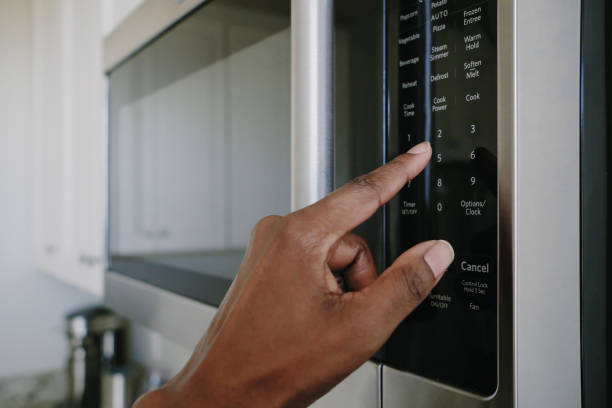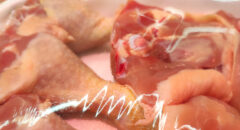
The microwave was a great invention that helps those of us who are constantly on the move or who just need something quick, easy and right now. But there are just some things that should not be reheated in the microwave because it hurts you more than you know.
1. Broccoli
Cooking broccoli on a plate with water can mean that a lot of the nutrients end up being lost.
Andrew D Scott, the owner of Victus Consultancy, says, ‘Broccoli cooked in a microwave with some water loses up to 97% of its beneficial antioxidants.
There’s a solution, though – instead, microwave the broccoli in a covered dish, with less fluid, and it should retain more antioxidants.
2. Anything In A Plastic Container
You know you shouldn't pop plastic leftover containers in there, but you still do. Here's why that's bad: Many plastics contain estrogen-like chemicals (BPA is a well-known one) that can leach into your food when the plastic is heated.
In a study published in Environmental Health Perspectives, 95 percent of 450 plastic products (such as baby bottles, zipper-top bags, and containers) tested released chemicals that acted like estrogen after they were microwaved, washed in a dishwasher, or soaked in water. Even products labeled "BPA-free" released estrogen-like chemicals. Better to be safe and warm up your dinner directly on a plate.
RELATED: With PFAS in Packaging, How Safe Is Microwave Popcorn?
3. Meat
Using the microwave to defrost food is a no-no – as it tends to damage the meat as it warms up. the best way to do it is to use water.
Seal the food properly in plastic, and it warms up faster using water (because water is more conductive) – meaning it tastes better.
Also, how you cook, store, and reheat processed meat can contribute to the production of cholesterol oxidation products, which can be more harmful to arterial cells than pure cholesterol and are more directly connected to heart disease.
One study found that microwaving meat resulted in higher production of COPs in sausages, bacon, and lunch meat, compared with other cooking methods.
4. Certain Coffee Mugs
Certain mugs made were glazed with materials that could give off radiation and may contain lead and other harmful heavy metals, according to Smithsonian.com.
That mug you found at your neighbor's garage sale may look cute, but consider adding it to your shelf collection instead of drinking from it.
5. Whole Eggs
Scrambled eggs can be good in the microwave, but don’t try boiling eggs in their shell, as they can explode – either in the microwave or in your face as you try to eat them.
The explosion usually happens after the egg is microwaved, which means it can happen when it's on your plate or even in your mouth when you take the first bite.
This happens both with eggs in their shell or peeled because pressure from steam built up inside of the egg turns a seemingly innocent snack into a ticking timebomb.
6. Hot Peppers
Not only might hot peppers catch fire in a microwave, but they also release chemicals that will sting.
Capsaicin—the chemical that makes hot peppers hot—is released in the microwave process. So when you open up your microwave, capsaicin will be released into the air, causing your eyes to sting and your throat to burn.
7. Any Kind of Oil (Cold Pressed)
If you think that you can heat up oil quicker in the microwave, don't. One of the best sources of omega-3 fatty acid is cold pressed oil like flaxseed oil, olive oil and canola oil. Omega-3 fat is very sensitive to temperature as it breaks and becomes rancid above 40 degree centigrade and can make you sick. Therefore, never heat cold pressed oil before consumption.








